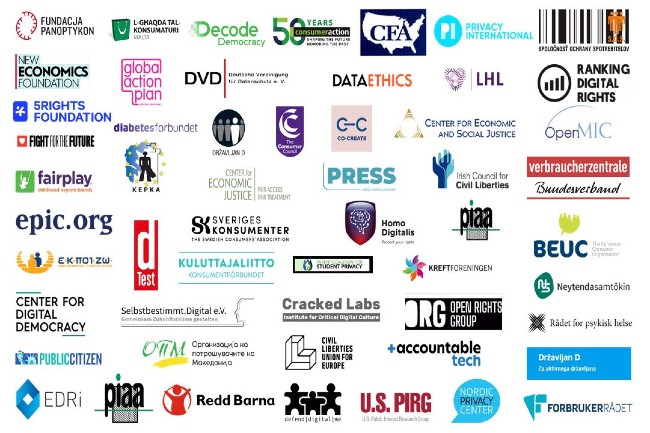International coalition calls for action against surveillance-based advertising
22. juni, 2021
Groups in Europe and U.S. ask for action to end practices that threaten citizens’ rights.
Every day, consumers are exposed to extensive commercial surveillance online. This leads to manipulation, fraud, discrimination and privacy violations. Information about what we like, our purchases, mental and physical health, sexual orientation, location and political views are collected, combined and used under the guise of targeting advertising.
In a new report, the Norwegian Consumer Council (NCC) sheds light on the negative consequences that this commercial surveillance has on consumers and society. Together with 55 organizations and more than 20 experts, NCC is asking authorities on both sides of the Atlantic to consider a ban. In Europe, the upcoming Digital Services Act can lay the legal framework to do so. In the US, legislators should seize the opportunity to enact comprehensive privacy legislation that protects consumers.
– The collection and combination of information about us not only violates our right to privacy, but renders us vulnerable to manipulation, discrimination and fraud. This harms individuals and society as a whole, says the director of digital policy in the NCC, Finn Myrstad.

In a Norwegian population survey conducted by YouGov on behalf of the NCC, consumers clearly state that they do not want commercial surveillance. Just one out of ten respondents were positive to commercial actors collecting personal information about them online, while only one out of five thought that ads based on personal information is acceptable.
– Most of us do not want to be spied on online, or receive ads based on tracking and profiling. These results mirror similar surveys from Europe and the United States, and should be a powerful signal to policymakers looking at how to better regulate the internet, Myrstad says.
Policymakers and civil society organisations on both sides of the Atlantic are increasingly standing up against these invasive practices. For example, The European Parliament and the European Data Protection Supervisor (EDPS) have already called for phasing out and banning surveillance-based advertising. A coalition of consumer and civil rights organizations in the United States has called for a similar ban.
Significant consequences
The NCC report ’Time to ban surveillance-based advertising’ exposes a variety of harmful consequences that surveillance-based advertising can have on individuals and on society:
Good alternatives
In the report, the NCC points to alternative digital advertising models that do not depend on the surveillance of consumers, and that provide advertisers and publishers more oversight and control over where ads are displayed and which ads are being shown.
– It is possible to sell advertising space without basing it on intimate details about consumers. Solutions already exist to show ads in relevant contexts, or where consumers self-report what ads they want to see, Myrstad says.
– A ban on surveillance-based advertising would also pave the way for a more transparent advertising marketplace, diminishing the need to share large parts of ad revenue with third parties such as data brokers. A level playing field would contribute to giving advertisers and content providers more control, and keep a larger share of the revenue.
The coordinated push behind the report and letter illustrates the growing determination of consumer, digital rights, human rights and other civil society groups to end the widespread business model of spying on the public.

Do you want to be a part of the appeal?
Please let us know if you or your organization would like to be a part of this appeal. All you have to do is to send us an e-mail and we will put you on the list.Open Letter to EU and US Policymakers Report: Time to ban surveillance-based advertising Customers attitude to surveillance-based advertising

Finn Myrstad
Fagdirektør

Øyvind H. Kaldestad
Kommunikasjonsrådgiver – digitale rettigheter og strøm